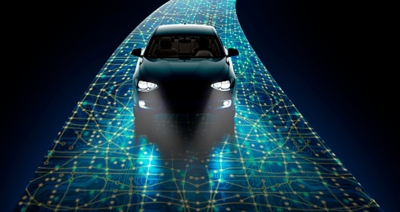Importance of cybersecurity grows in software-defined vehicles era
By IANS | Updated: May 23, 2025 09:22 IST2025-05-23T09:15:18+5:302025-05-23T09:22:57+5:30
Seoul, May 23 Cybersecurity is becoming an increasingly important factor car manufacturers have to consider with the global ...

Importance of cybersecurity grows in software-defined vehicles era
Seoul, May 23 Cybersecurity is becoming an increasingly important factor car manufacturers have to consider with the global automotive industry's move toward more "connected" and "software-defined" vehicles, an executive at a South Korean automotive cybersecurity solutions provider said.
"The era of software-defined vehicles is coming ... which means there is much more interface connecting the cars and the external environment, making cars more vulnerable to cyberattacks," Lee Joo-hwa, head of Autocrypt's European branch, told Yonhap News Agency on the sidelines of the 2025 International Transport Forum Summit in Leipzig, Germany.
"It also means there is a higher possibility of data breaches in SDVs, which deal with exponentially larger amounts of data (than hardware-defined vehicles)," she said.
SDVs refer to next-generation automobiles where software plays a central role in controlling, managing and enhancing their functions. The concept also includes self-driving cars.
Lee said cybersecurity in the future mobility industry directly impacts the driver's life and safety, as well as the protection of their personal information.
"Imagine if a problem occurs on signals, communications or data in automobiles (due to a breach in cybersecurity), disabling cars from stopping when they have to. It will directly lead to an accident," she explained.
"Also, with cars containing so much information of their drivers, there is a risk they can be easily leaked," she added.
Founded in 2019, Autocrypt has been providing cybersecurity solutions to more than 20 carmakers across the globe, including South Korean industry leader Hyundai Motor Group and global powerhouses, such as Audi and General Motors, as well as some 40 percent of major global auto parts manufacturers.
Lee said major economies have been moving to adopt legislation mandating car manufacturers embed cybersecurity features in their products.
In July last year, the European Union implemented new rules requiring the mandatory installation of cybersecurity management systems for all new vehicles to be sold in the region.
South Korea is set to implement similar rules promoting improved cybersecurity of vehicles in August under the revised Motor Vehicle Management Act, with India also scheduled to introduce such regulation by 2027.
"But it is ultimately in the hands of original manufacturers to decide to what extent they will incorporate cybersecurity solutions into their cars," she said.
Lee said cyberattack cases targeting automobiles happen every year, stressing the importance of stronger cybersecurity measures for mobility.
According to a report from U.S.-based data security firm Upstream Security, researchers detected 108 mobility-specific ransomware attacks and 214 data breaches across the world in 2024, which contributed heavily to the rise in cybersecurity incidents in the mobility ecosystem.
Disclaimer: This post has been auto-published from an agency feed without any modifications to the text and has not been reviewed by an editor
Open in app